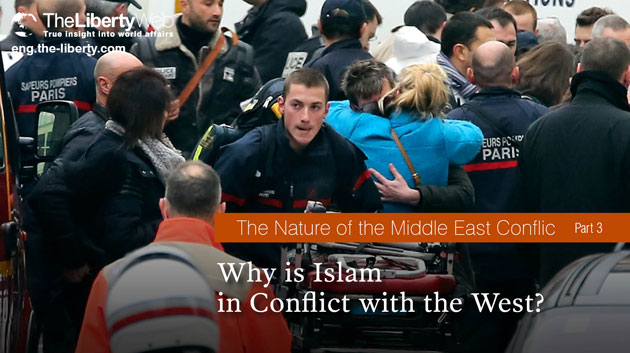Why Are Muslims in Conflict with the West?
Islamic extremists have named North America and Europe as targets for their attacks. Al Qaeda included on its hit list the artist of the cartoon that triggered the recent shooting at Charlie Hebdo. Why do they hold such enmity toward the West? The roots of their hostility lie within history.
From the Humiliation under Colonial Rule to the Rise of Fundamentalism
During the Middle Ages, Islamic countries followed the teachings of tolerance, and prospered with the incorporation of knowledge from other civilizations. At the same time, they also had to protect themselves continually from Christian Crusaders.
However, as the West underwent the Reformation and the Industrial Revolution, and its economic and military power rose, Western nations began to colonize the Islamic world. During this time, the influence of Islamic law began to wane, and Western law took over.
During this era of humiliation, Muslims who idealized the age of Muhammad began a revival movement (Salafi), thus causing the rise of fundamentalism. They believed that if they could reinstate strict Islamic Law, they could restore the glory of Islam. Some of these individuals began to resort to violence to achieve their ends.
Western colonizers divided their lands into countries without regard for the different ethnic groups and religious factions, consequently sowing the seeds of violence in the Middle East.
The Emergence of Violent Islamic Laws Based on Extremist Interpretations
After WWII, Muslim countries regained their independence, but under such unstable circumstances, their militaries gained power, resulting in military dictatorships in most of the countries.
On the surface, however, they appeared to adopt Western-style democracy, as this was advantageous to them, but corruption reigned amongst their leadership. Extremists that opposed Western values rebelled, thus causing violent conflicts.
In 1979 Iran, the Shia fundamentalists gained power through a revolution, and succeeded in reviving Islamic Law. From the 1970s to the 1990s, other countries such as Pakistan, Sudan, and Nigeria also cultivated governing systems based on Sharia Law.
Many of them, however, were not true interpretations of orthodox Islamic Law. Instead, they were of the violent sort; they enacted laws that had extremist interpretations. Researchers claim that these laws have been used as a means to justify violence more so than in the past.
Not only are these interpretations of Islam outdated; they have been the cause of significant suffering in the past, and a solution to the violence raging throughout the Islamic world is yet to be seen.
In Part 4, we will show an interview by a renown expert on Islam to get his views on how to combat the problems ailing the Middle East.



















